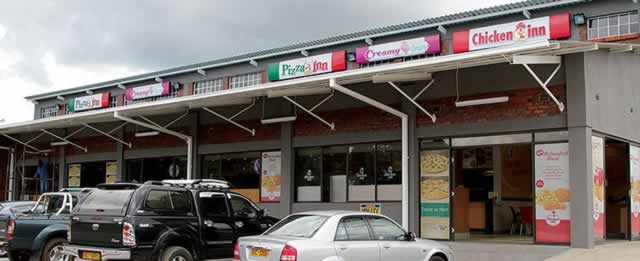Zim needs economic partners, not spectators


Securitisation of minerals to finance Zim-Asset is not a fallacy, as exhibited by Belgium when it broke ranks with other EU countries to auction diamonds from Chiadzwa at Antwerp
Benny Tsododo
Last week the World Bank made comments on Zimbabwe’s Zim-Asset economic blueprint that somehow betrayed its passer-by attitude towards the country’s economy.
The World Bank’s senior economist, Nadia Piffaretti, told a news conference on Wednesday that Zimbabwe was better advised to seek loans at concessionary rates instead of securitising its minerals in order to secure loans.
Piffaretti said, “Securitisation of minerals is one way of financing things.
“However, it brings a lot of risks. It’s not an easy solution because you might end up giving away more than you are getting.”
The securitisation of minerals is part of the Zim-Asset plan to raise the US$27 billion needed to drive the revival of the economy.
Already Zimbabwe has directed diamond companies to deposit their gems with the Reserve Bank of Zimbabwe (RBZ) as part of wider efforts to secure external loans by securitising the minerals.
It cannot be debated that Zimbabwe’s policy-makers came up with the plan to securitise the country’s minerals after international lenders like the World Bank apparently snubbed the country’s request for loans, particularly loans at concessionary rates.
So while it is easier and convenient for the World Bank to simply pass comments from its spectator standpoint, it is not easy for Zimbabwe to sheepishly take such advice.
Similar comments were made by Denmark, which sought to dismiss Zim-Asset as impractical.
The head of mission at the Royal Danish Embassy, Erik Rasmussen, was last week quoted saying, “The problem with Zim-Asset is that it is not really implementable in the way it has been presented. No one can argue with the fact that there is a lot of valuable stuff in Zim-Asset, but the economic blueprint has to be taken to the next level.”
Coincidentally, Denmark had made encouraging headlines during the week with reports that it was going to inject US$95 million into Zimbabwe through the Denmark-Zimbabwe Development Partnership Programme for 2013 to 2015. The programme is reportedly aimed at “building democratic institutions and promoting universal human rights.”
While Zimbabwe fully appreciates this kind of support, at this juncture the country particularly needs economic support for the Zim-Asset blueprint, which Denmark is trying to underplay.
Unlike the plan to merely push for the neo-liberal values of “human rights and democracy”, which are not in deficit in Zimbabwe by the way, the Zim-Asset plan is designed to rebuild the economy and improve people’s lives.
It should be underscored that Zimbabwe does not need armchair critics but active international partners who are willing to support its efforts to revive its limping economy.
Such support could be proffered through improved trade relationships and the lifting of sanctions.
The template of such mutual support is readily available from Belgium, which I think has provided a mature, workable and emotionless trade template.
While the rest of Europe, under the aegis of the European Union (EU), is fumbling for the best way to re-engage Zimbabwe, given the sanctions it imposed on the Southern African country, Belgium went ahead and claimed its sovereign right to directly trade with Zimbabwe.
So far Belgium has bought the bulk of tobacco from Zimbabwe this season. According to statistics from the Tobacco Industry and Marketing Board (TIMB) as at May 30, 2014, Belgium had snapped up at least 7,1 million kilogrammes of tobacco worth US$29 million at an average price of US$4.19.
Belgium is followed by the United Arab Emirates which accounted for 4,2 million kilogrammes of the golden leaf.
Belgium is not only involved in buying tobacco from Zimbabwe. Last year the country broke ranks with the rest of Europe by demanding that the EU lifts sanctions it imposed on some Zimbabwean diamond mining firms to enable it to trade in Marange gems.
When the EU lifted the embargoes, Belgium started selling Marange gems at its Antwerp World Diamond Centre. The first diamond sale at Antwerp yielded US$10,5 million for Zimbabwe while the second sale generated around US$70 million from the 959 931 carats of diamond sold.
A snap review of the aforementioned diamond and tobacco trade transactions reveals that cumulative earnings of around US$109 million were realised by Zimbabwe.
These earnings will definitely feed into the objectives of the Zim-Asset plan and prove that contrary to Denmark’s pronouncements, the economic blueprint is practical once supported.
Some may question how trade with Belgium will support the Zim-Asset plan and this is how.
By buying tobacco from small scale farmers, Belgium is helping in the creation of employment in the country, which is one of the main objectives of Zim-Asset.
Employment will not only be created in the tobacco farming sector but also in the downstream tobacco industries from transporters, auction floors, tobacco sorting companies and cigarette manufacturing firms.
Both the tobacco and diamond sales will also inject into the economy the much-needed cash to curb the debilitating liquidity crunch. So in addition to providing markets for Zimbabwean produce and minerals, trade with Belgium has also provided other positive economic spin-offs that could buoy the country into achieving its economic goals as enunciated in the Zim-Asset blueprint.
What is apparent is that Zimbabwe does not need countries who adopt a wait-and-see approach or those that lethargically pass spectator-comments that do not add any value to the economic aspirations of Zimbabweans.
The World Bank should not pass armchair comments on Zimbabwe but should, as one of the international money lenders, actively support the country by advancing the required loans at concessionary rates.
Similarly, Denmark and the rest of the EU should not just sit on fence and spew harsh comments about Zimbabwe’s economic policies. They should completely lift embargoes imposed on Zimbabwe and facilitate free trade between their bloc and the Southern African country.
Surely, if the rest of Europe could directly engage Zimbabwe as being done by Belgium, the derived economic benefits would be gargantuan and make the implementation of Zim-Asset practical.
Europe does not need to wait for its September 2014 meeting to review its relations with Zimbabwe.
It should consider re-engaging Zimbabwe now.
However, with reports that a delegation from the European Investment Bank is in Harare to review the investment climate, we only hope that this will be a harbinger of better relations to come.










Comments